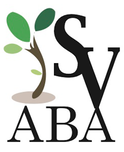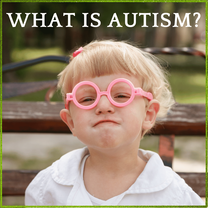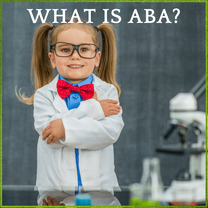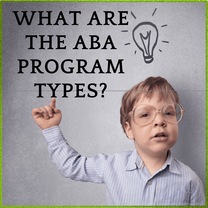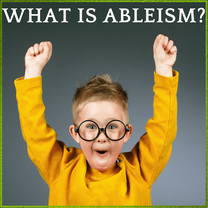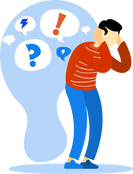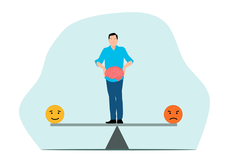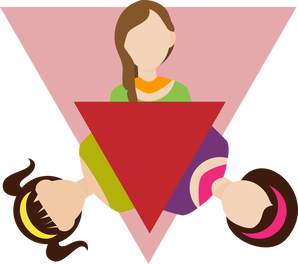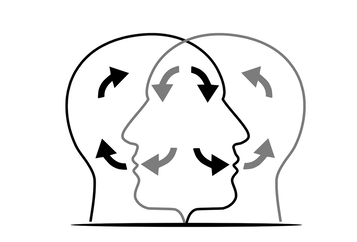What are the ABA Program Type?
Program Type #1: Intensive ABA Therapy
|
Setting: Intensive ABA Therapy usually takes place in the home setting. However, it can also be held in a clinic, at a willing daycare or preschool setting, or even at a relative’s house. As long as we have the permission of everyone involved and it is a safe and appropriate setting, ABA can be held just about anywhere.
Learning domains: Children receiving intensive ABA therapy have a large number of goals across any domain areas of need. An individual learner may have goals addressing language development, social skills, self-help skills, safety, self-management, coping skills, functional communication, listener responding skills, etc. Because the number of service hours are higher, the team is able to address a greater number of goals. Age Range: This type of ABA program is provided for children approximately 1.5 - 6 years old. Hours per Week: Range 15-40 hours per week depending on the learners areas of need, availability, other services the child receives, and age. |
Program Type #2: Focused Program
|
Setting: A focused program is a smaller ABA program with a focus on a specific area of growth.
Learning domains: Individuals in a focused program have a smaller number of goals that are targeted within specific areas of need. This is highly dependent on the individual, but examples include: -Social pragmatics and perspective taking -Self-help and functional communication -Community-based skills -Prevocational training Age Range: This type of ABA program is provided for individuals usually ranging from about 6 through adulthood. Hours per week: Range of 4-15 hours per week depending on the learners areas of need, availability, other services the child receives. |
Program Type #3: School Support
Individualized school-based services are available with the approval of the school administration and teacher. SVABA can work collaboratively with parents and school staff to develop the most appropriate type of support and level of support.
|
Services are offered based on the needs of the learner or the school as a whole, and may include:
|
Program Type #4: Social Skills Groups
SVABA provides social skills groups to children who are ready to learn in a small group setting. The groups vary greatly in terms of their structure, location, and theme. Weekly groups are offered for children ages 3 and up.
Social skills groups are carefully and thoughtfully designed in order to select peers that will be a “good fit” for each other based on their age, areas of need, and availability. At that point, group goals are created.
Children who are receiving 1:1 ABA programs may qualify for a group as well as their home therapy, but it is not necessary to have an intensive program in order to join these groups.
Social skills groups generally compose of 3-8 participants. The location and purposes of these services can vary. The following are examples of social skills group types.
Social skills groups are carefully and thoughtfully designed in order to select peers that will be a “good fit” for each other based on their age, areas of need, and availability. At that point, group goals are created.
Children who are receiving 1:1 ABA programs may qualify for a group as well as their home therapy, but it is not necessary to have an intensive program in order to join these groups.
Social skills groups generally compose of 3-8 participants. The location and purposes of these services can vary. The following are examples of social skills group types.
|
Example 1: Playgroups for Early Learners
A play-based social skills group is designed for early learners (aged 3-5) and will focus on early social skills and play skills. These will take place in a clinic or school setting. Example goals may include social referencing, interactive play skills, turn-taking, and following group instructions. Example 2: Elementary-Aged Social Skills Group A social skills group designed for elementary schoolers (ages 6-9) may focus on social pragmatics and flexibility. These types of groups may take place in a clinic, school, or community setting. It is possible for them to occur at least partially via Telehealth. Example goals may include compromising, sportsmanship, conversations, coping strategies, flexibility, responding to teasing and bullying, and cooperative play. Example 3: Advanced Social Skills Groups An advanced social skills group is designed for pre-teens and above. These groups may take place in a clinic, the community, a school, or via Telehealth. These groups focus on goals such as self-advocacy, having get-togethers, relationship skills, perspective-taking skills, conflict resolution, and more. |
Program Type #5: Parent-Led Training

There are some situations in which having a fully-staffed program, as much as it may be needed, is not possible or not desired. For example, if a child or member of the household is chronically ill, if travel to the home is too challenging, or if sufficient staffing is not available, caregivers can be trained and coached to do therapy themselves under the guidance of a Board Certified Behavior Analyst® (BCBA®). Many families opted for this solution during the pandemic with exciting results. Telehealth has become an excellent tool for supervision, and can be used to great effect for both training and supervision purposes even from around the globe.
Copyright © 2015 | 7500 Arroyo Circle, Suite 180, Gilroy, CA 95020 | 408-418-7121 |
